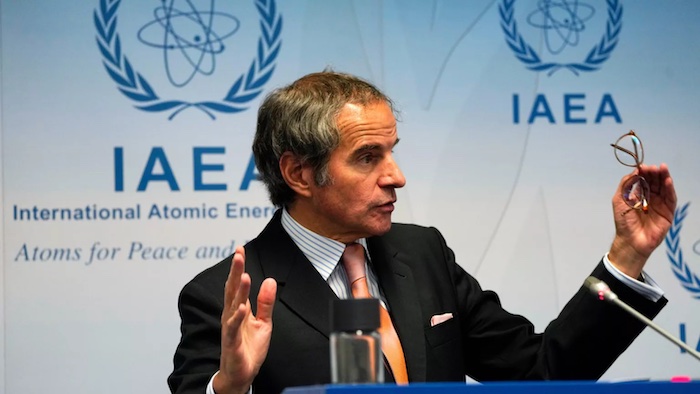The head of the United Nations nuclear watchdog has warned that Iran could restart its uranium enrichment programme to weapons-grade levels “within a matter of months,” raising new concerns about the country’s nuclear ambitions despite recent airstrikes by the United States and Israel.
Speaking to CBS News over the weekend, Rafael Grossi, Director General of the International Atomic Energy Agency (IAEA), said the strikes which targeted key nuclear facilities earlier this month caused significant disruption, but ultimately failed to eliminate Iran’s capacity to resume nuclear activities.
“Frankly speaking, one cannot claim that everything has disappeared and there is nothing there,” Grossi said, challenging former U.S. President Donald Trump’s claim that Iran’s nuclear programme had been “totally obliterated.”
On June 13, Israel carried out coordinated strikes on several Iranian nuclear and military installations, accusing Tehran of nearing nuclear weapon capability.
The U.S. later joined in, hitting three critical sites: Fordo, Natanz, and Isfahan. While both governments touted the operation as a strategic success, the IAEA’s assessment paints a more cautious picture.
According to Grossi, Iran still possesses the technological infrastructure and industrial expertise necessary to resume uranium enrichment — and could do so quickly if it chooses.
He added that restarting a limited cascade of centrifuges would not take long.
This assessment aligns with a leaked U.S. Pentagon intelligence report last week, which estimated that the strikes had set back Iran’s programme by only a few months.
Tehran has offered mixed messages in the aftermath. Supreme Leader Ayatollah Ali Khamenei downplayed the impact of the strikes, saying they achieved “nothing significant.”
However, Foreign Minister Abbas Araghchi described the damage as “excessive and serious.”
In a further escalation, Iran’s parliament recently passed a bill to suspend cooperation with the IAEA, accusing the agency of bias following a recent resolution that found Iran in breach of its nuclear non-proliferation obligations.
The move could lead to the expulsion of UN inspectors and a halt in oversight of Iran’s nuclear activities.
Despite the rising tensions, Grossi stressed the need for diplomacy:
“This whole thing, after the military strikes, will have to have a long-lasting solution which can only be a diplomatic one.”
Iran continues to insist its nuclear programme is for civilian use only.
However, under the now-crippled 2015 nuclear deal (JCPOA), Iran had agreed to enrichment limits and oversight mechanisms that it has gradually abandoned since the U.S. withdrew from the pact in 2018.
According to IAEA estimates, Iran now has enough uranium enriched to 60% purity dangerously close to weapons-grade to potentially build up to nine nuclear bombs if further enriched.
As international efforts to revive the nuclear agreement remain stalled, the latest developments have reignited fears of a renewed arms race in the Middle East and a potential nuclear crisis on the horizon.







